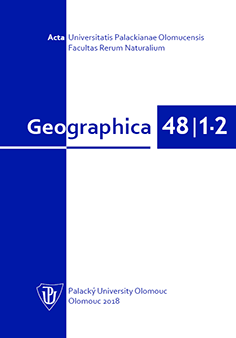Geographica 48/1-2 (2019)
|
Acta Universitatis Palackianae Olomucensis |
 |
| Back to contents | Zpět na obsah |
Unrecognised state entities – evaluation of emerging states in the 21st century
Štěpán Podhrázský
Full text: ![]() PDF (2 MB)
PDF (2 MB)
Received: 29 July, 2018
Accepted: 10 December, 2018
Abstract
Since the end of World War II, the international community has observed the principle of territorial integrity. Beyond the context of decolonization, it categorically refuses to grant the sovereignty to any entity created by the secession process without the approval of the central government of the parental state. Doubting the principle of territorial integrity would call into question the legitimacy of the global political system as we know it. Legitimately, an infinite number of entities would be created to join or divide according to the current situation and needs. From the point of view of the established international order, it would be an unpredictable chaotic state. The negative approach of the international community to any changes and secessionist efforts, in particular, is a natural consequence. Yet the emergence of new entities striving to gain state status cannot be avoided. Although these so-called “unrecognized state entities” often show greater functionality than the original sovereign, they cannot gain the support of the international community and thus they are getting into a political vacuum. The aim of this paper is to qualitatively analyze and terminologically integrate unrecognized state entities and thereby provide basis for solving their unsatisfactory status in politico-geographic space.
Key words
political geography, unrecognized states entities, quasi-states, evaluation criteria
Last modified 14/04/20 | ↑ top